Tips for Balancing Saltwater Swimming Pool Water Chemistry
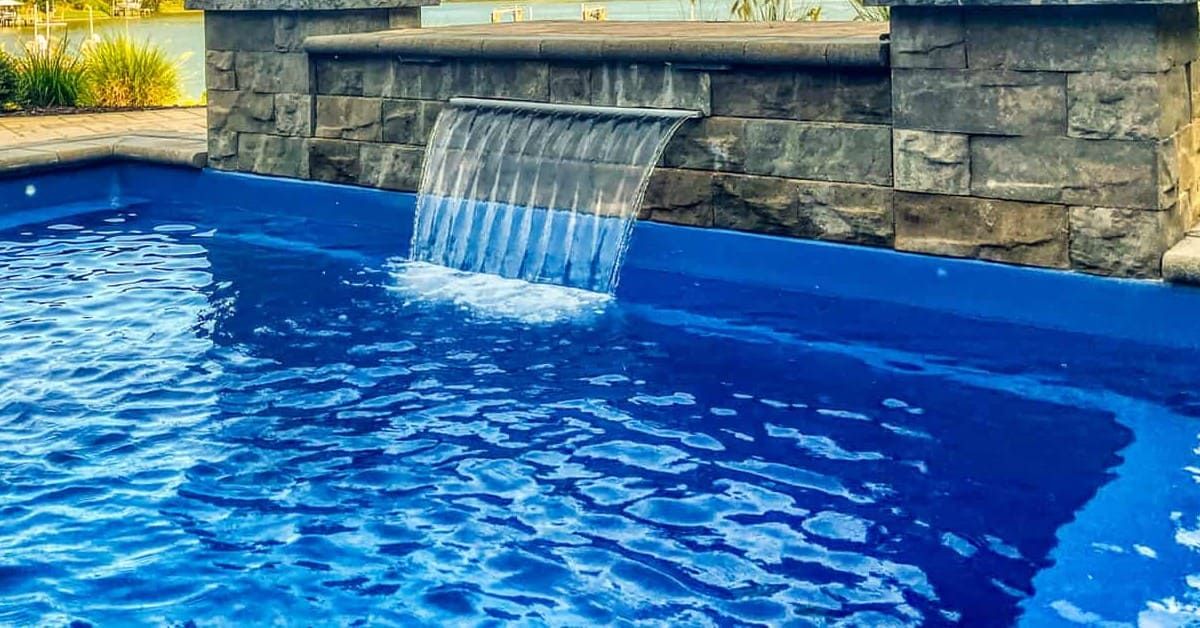
If you’re lucky enough to have a saltwater swimming pool in Virginia Beach or Chesapeake, you know the joys of a low-maintenance pool system. However, even with the benefits of a saltwater system, you still need to balance your pool’s water chemistry to keep it sparkling clean and not cloudy. In this blog post, we’ll discuss how to properly balance saltwater swimming pool water. Even if you chose to hire a pool maintenance company, all pool owners should have foundational knowledge for pool water chemistry.
Solid Structures specializes in professionally designed and installed fiberglass swimming pools in the Virginia Beach/Chesapeake/Coastal Virginia area. However, we also install the concrete precast plunge pools. For a professional design consultation, please Contact Us to get your project started.
Why Balance Your Saltwater Pool’s Water?
Balancing your pool’s water is essential for several reasons, including:
- Safety: When your pool’s water chemistry is unbalanced, it can become a breeding ground for harmful bacteria and viruses that can cause illness.
- Comfort: Balanced pool water is essential for a comfortable swimming experience. If the water is too acidic or too alkaline, it can cause skin and eye irritation.
- Equipment Protection: An unbalanced pool can damage your pool equipment, such as your pool pump and filter, costing you unnecessary expenses.
Now that you know why it’s crucial to balance your pool’s water let’s dive into how to do it.
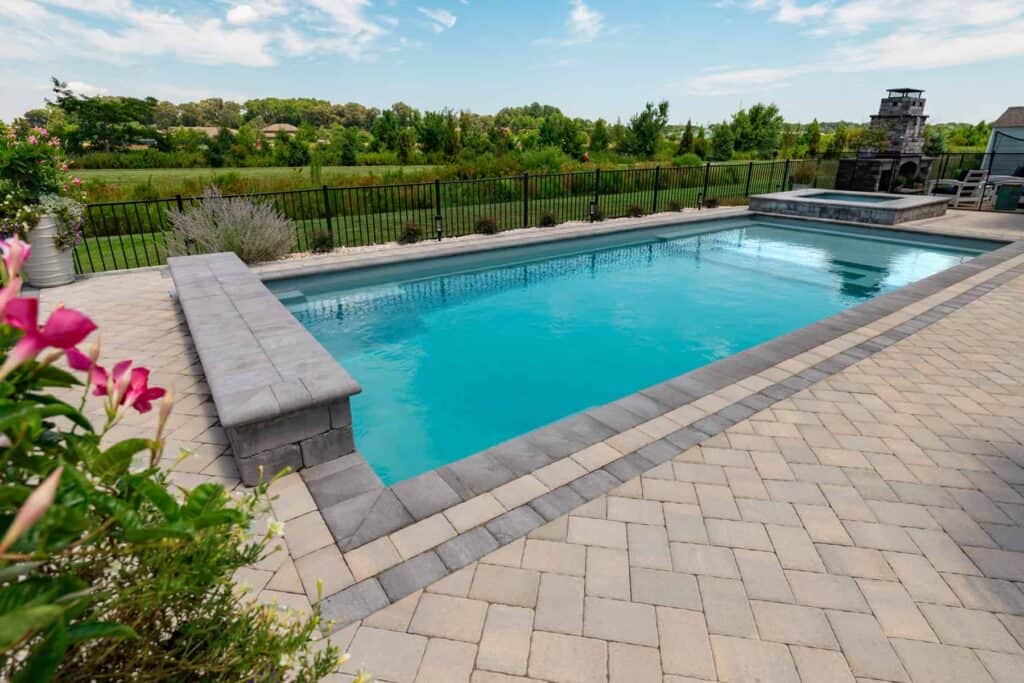
Balancing Saltwater Pool Water
- Test Your Water: The first step to balancing your pool’s water is to test it regularly. You can use a test kit or take a sample to your local pool supply store to get it tested. You should test your water at least once a week and adjust accordingly.
- pH: The ideal pH level for a saltwater pool is between 7.4 and 7.6. If the pH is too high, add a pH decreaser. If the pH is too low, add a pH increaser.
- Alkalinity: The ideal total alkalinity level for a saltwater pool is between 80 and 120 parts per million (ppm). If the alkalinity is too high, add an alkalinity decreaser. If the alkalinity is too low, add an alkalinity increaser.
- Calcium Hardness: The ideal calcium hardness level for a saltwater pool is between 200 and 400 ppm. If the calcium hardness is too high, add a calcium hardness decreaser. If the calcium hardness is too low, add a calcium hardness increaser.
- Pool Salt Level: Check your pool salt level regularly, and add salt as needed to maintain the recommended salinity range for your specific system. If there’s not enough salt for the correct salinity level , your saltwater chlorine generator or salt cell will not be able to produce chlorine to keep your swimming water clean and sanitized.
- Chlorine and Shock: Free chlorine involves the amount of chlorine that’s able to sanitize contaminants, while combined chlorine refers to chlorine that has combined directly with the contaminants. Total chlorine is basically the sum of free chlorine and combined chlorine. Test for these both and simple test strips give a pretty accurate ballpark value for the homeowner to ensure your system is operating properly. It’s also important to shock your pool regularly to mitigate cloudy water. Follow the manufacturer’s instructions for the right amount to use based on the size of your pool. Shock is non-stabilized chlorine so it wears off quickly and does not stay in your pool for long periods of time.
- Cyanuric Acid (aka Chlorine Stabilizer): Chlorine Stabilizer is like sunscreen for your chlorine to prevent the sun from burning it out of the water. Adding the recommended amount will keep your chlorine salt cell generator working at its best and not working too hard to maintain proper chlorine levels. Be aware, adding too much can prevent your chlorine from working at all, so always add the correct amount at the beginning of the season and test. Less is more. You can always add more if needed but taking cyanuric acid away requires partially draining and filling your pool.
- Maintenance: Keep your pool clean by vacuuming, skimming, and brushing regularly. Also, clean your pool’s filter as recommended by the manufacturer. Be familiar with the pressure gauge when it is clean and when it rises 10-20psi, it may be time to give the filter a cleaning.
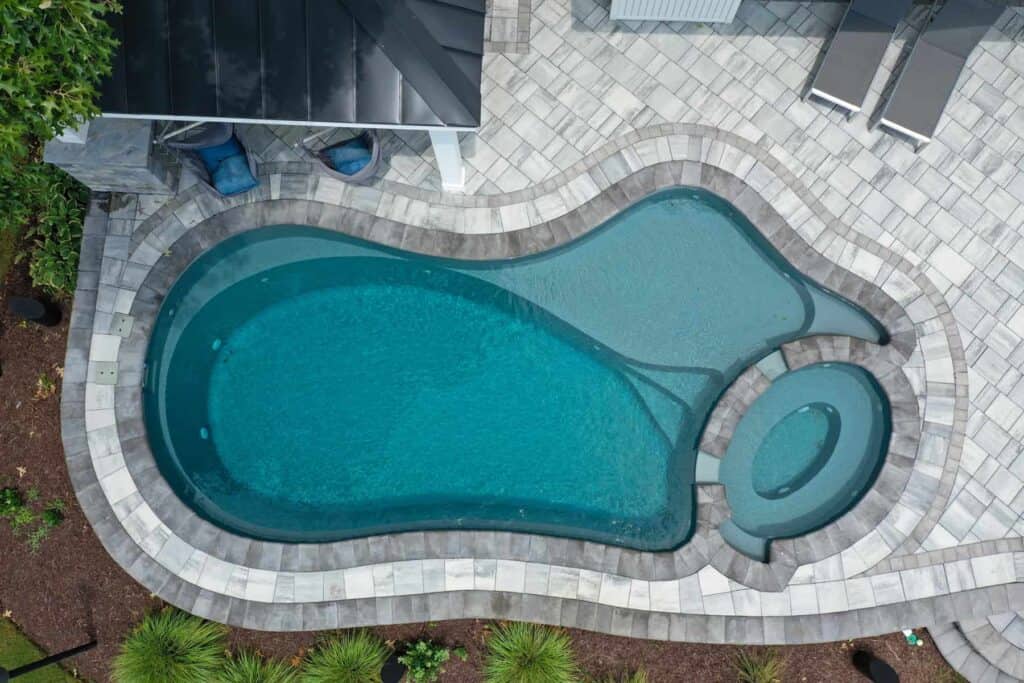
Conclusion:
Properly balancing saltwater pool water is crucial for a safe, comfortable, and enjoyable swimming experience. Regular testing and adjustments to pH, alkalinity, calcium hardness, salt level, and shock treatment will help keep your pool water sparkling clean and healthy. Don’t forget to maintain your pool equipment and keep your pool clean with regular maintenance. With a little effort, you can enjoy your saltwater pool all season long!
If you are looking for a swimming pool in the Virginia Beach, Chesapeake, or larger Coastal Virginia area, please contact Solid Structures.

Written By Scott Prunty
Scott Prunty is the president of Solid Structures. Throughout his 15 active years in the Design-Build Outdoor Living industry, he has earned various certifications in the areas of ICPI Residential, ICPI Advanced Residential, ICPI Commercial, PCIP, and is an ICPI certified instructor.
- 15 years actively in the Design-Build Outdoor Living industry
- ICPI certified Instructor
- ICPI Residential, ICPI Advanced Residential, ICPI Commercial, and PCIP certified
- Imagine Pools certified installer
- Fluidra certified installer
- Trex Platinum Pro
- Avid saltwater person, boating, diving, surfing, fishing

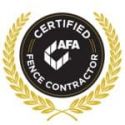




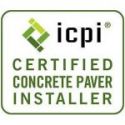

Outdoor Living Redefined. Solid Structures offers full service design build capabilities all under one roof.
179 S Birdneck Rd
Virginia Beach, VA 23451
Serving Areas
- Chesapeake, VA
- Suffolk, VA
- Portsmouth, VA
- Norfolk, VA
- Virginia Beach, VA
- and surrounding areas
Hours of Operation
- Mon - Fri: 8:00am – 5:00pm
- Sat - Sun: Closed
-
Weekends by Appointment Only
Outdoor Living Redefined. Solid Structures offers full service design build capabilities all under one roof.
© 2025 Solid Structures - All Rights Reserved.











